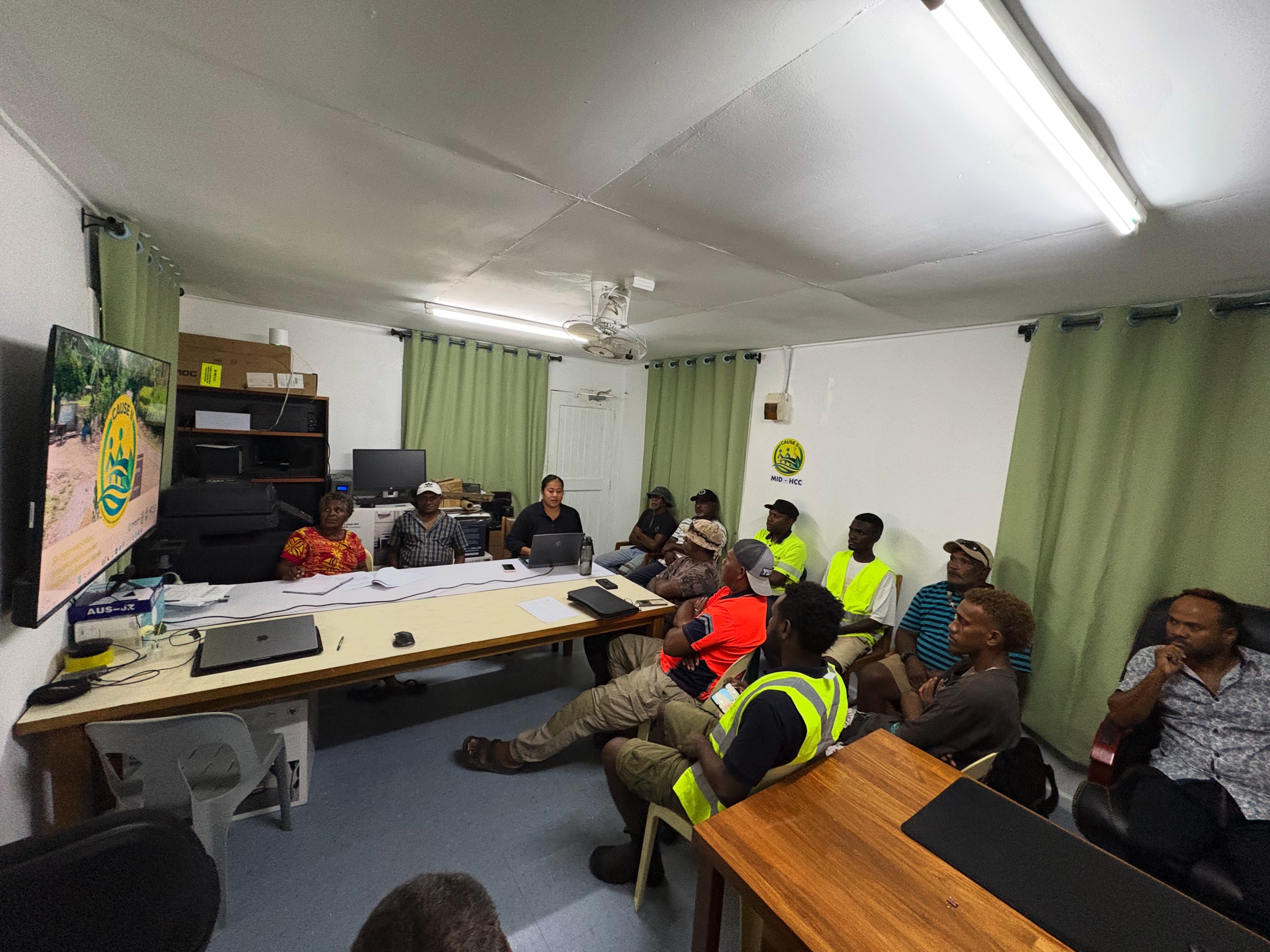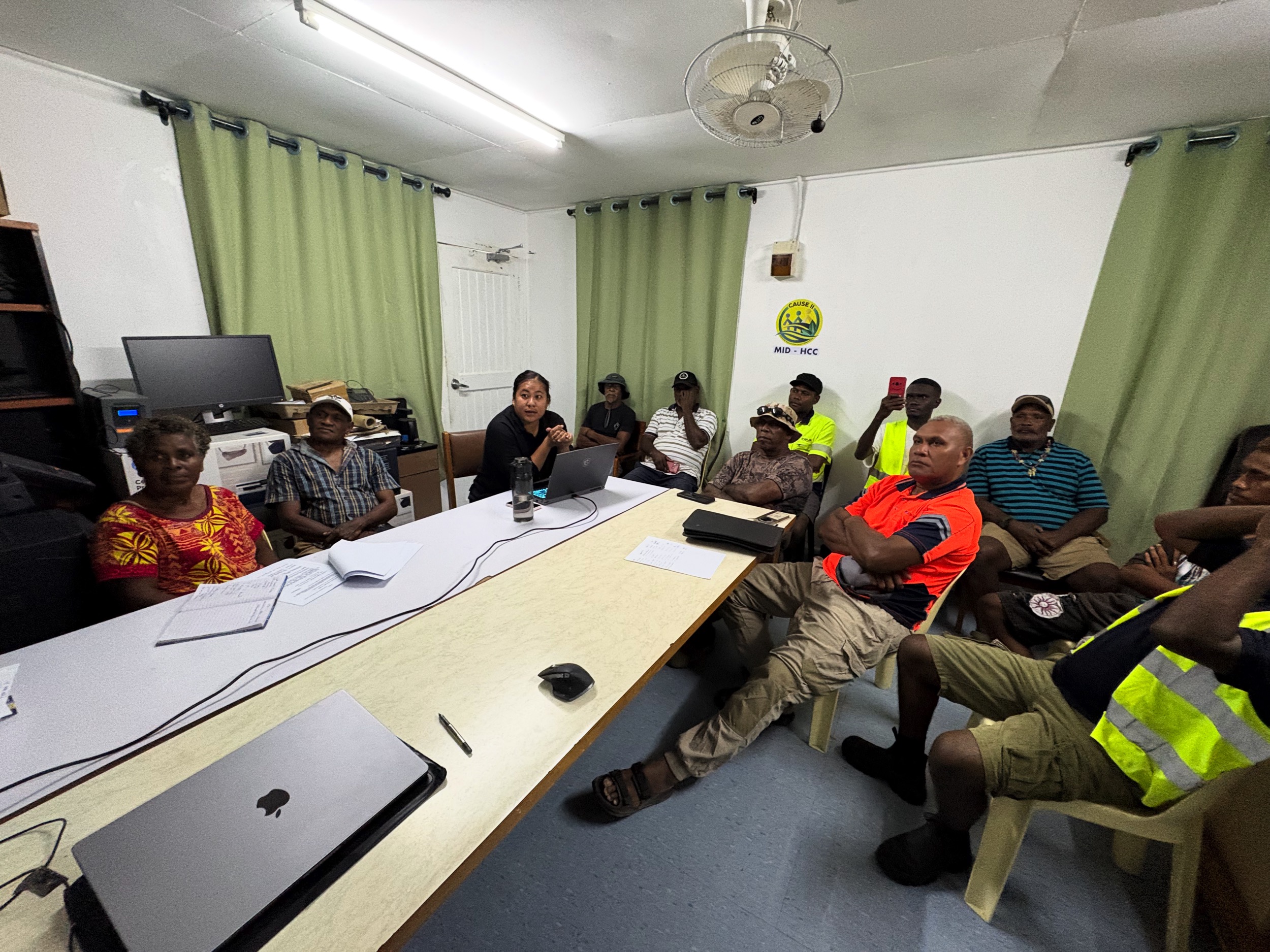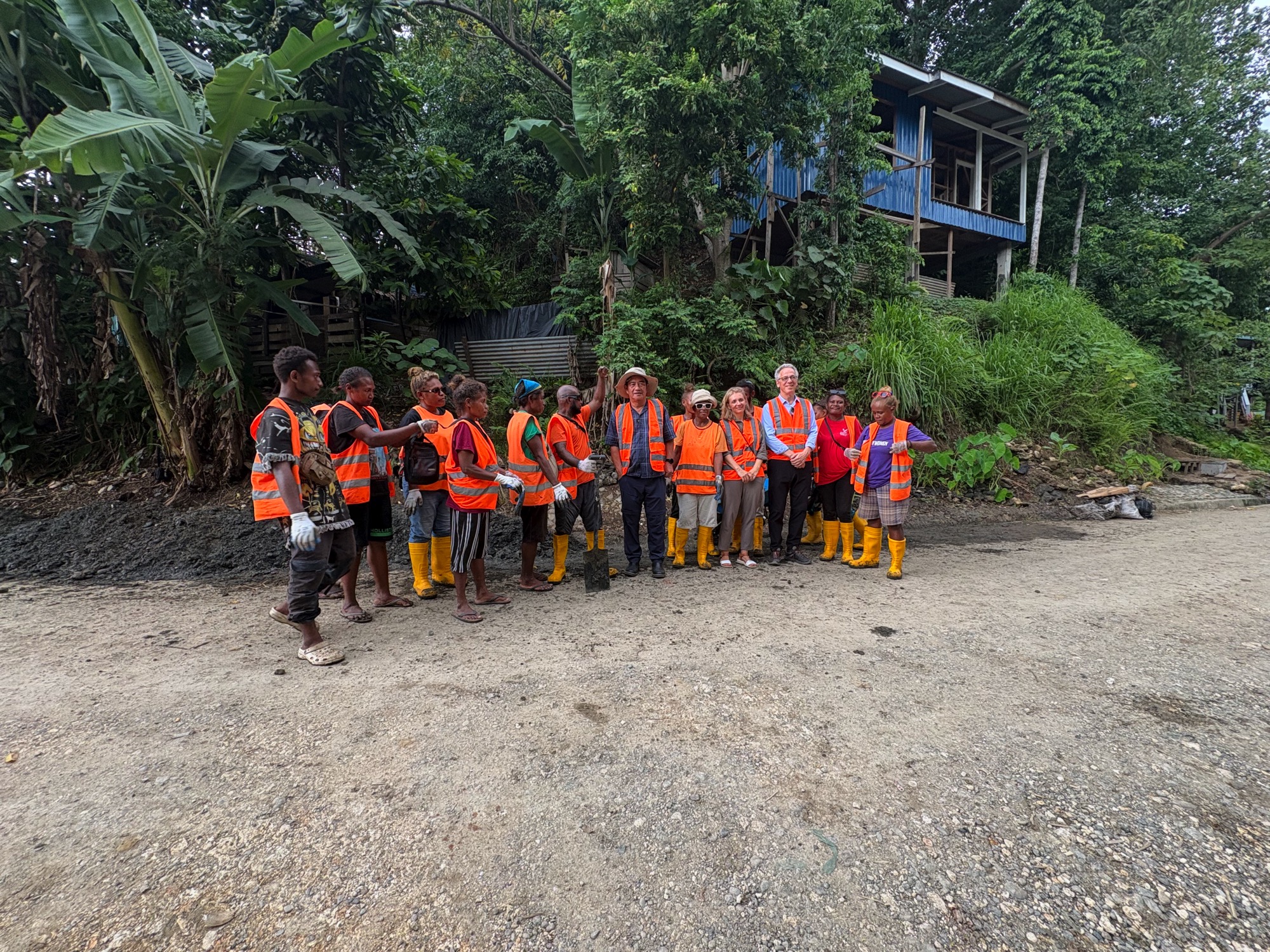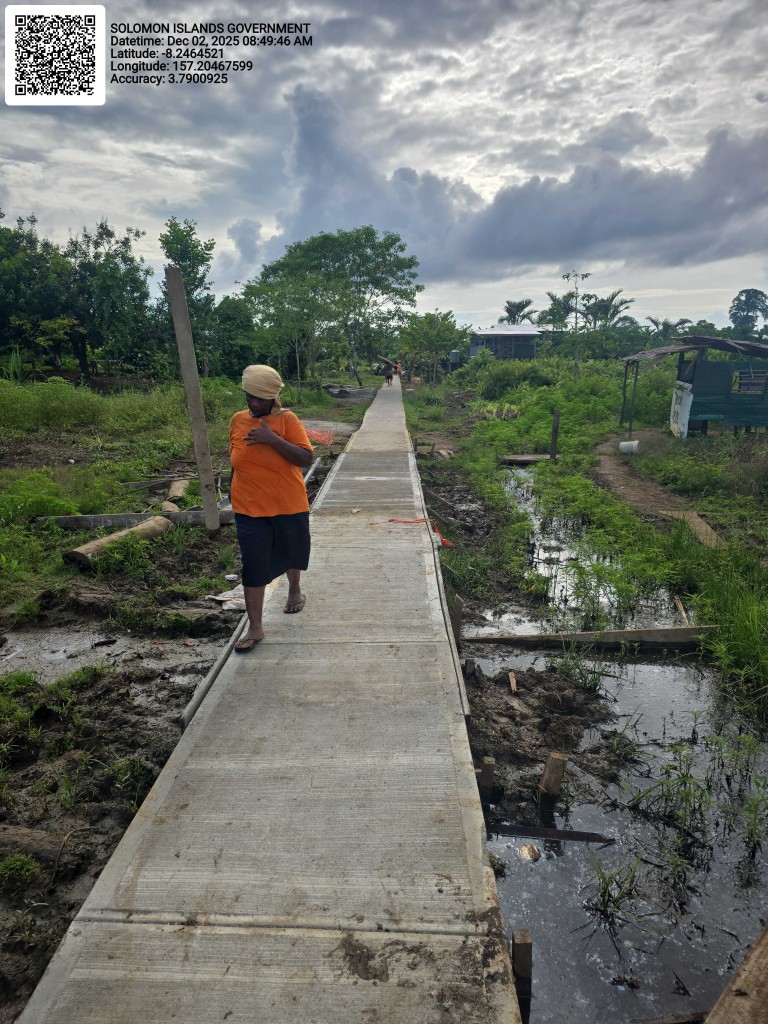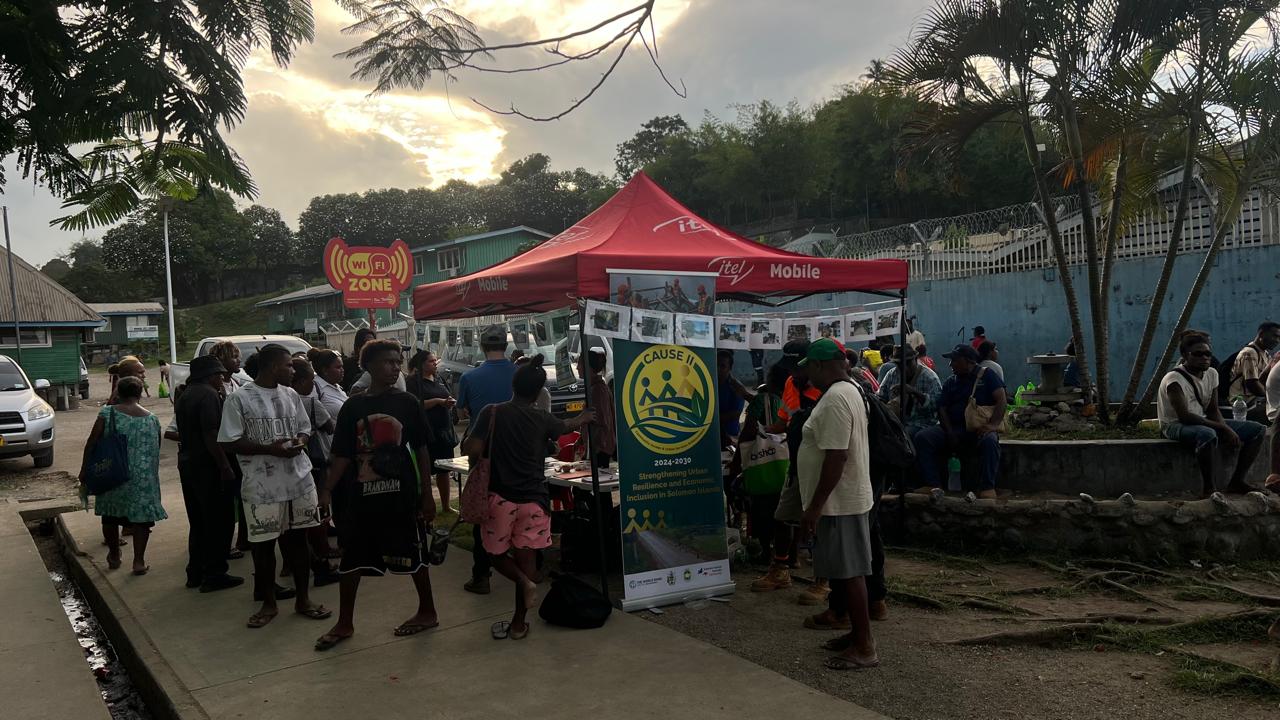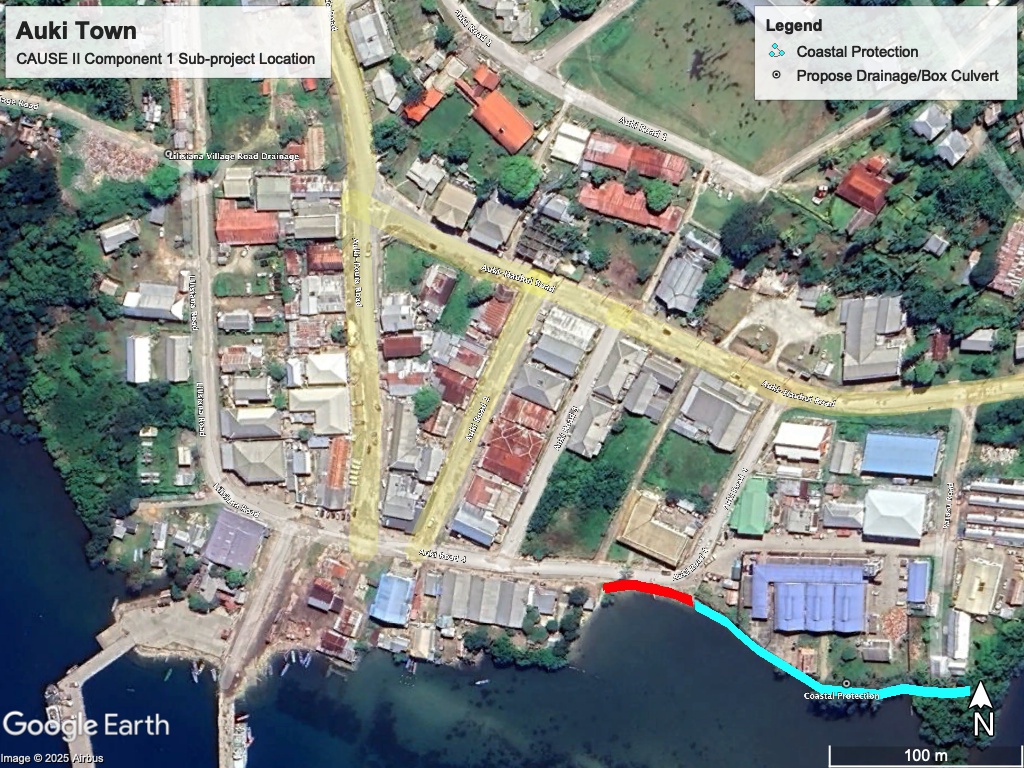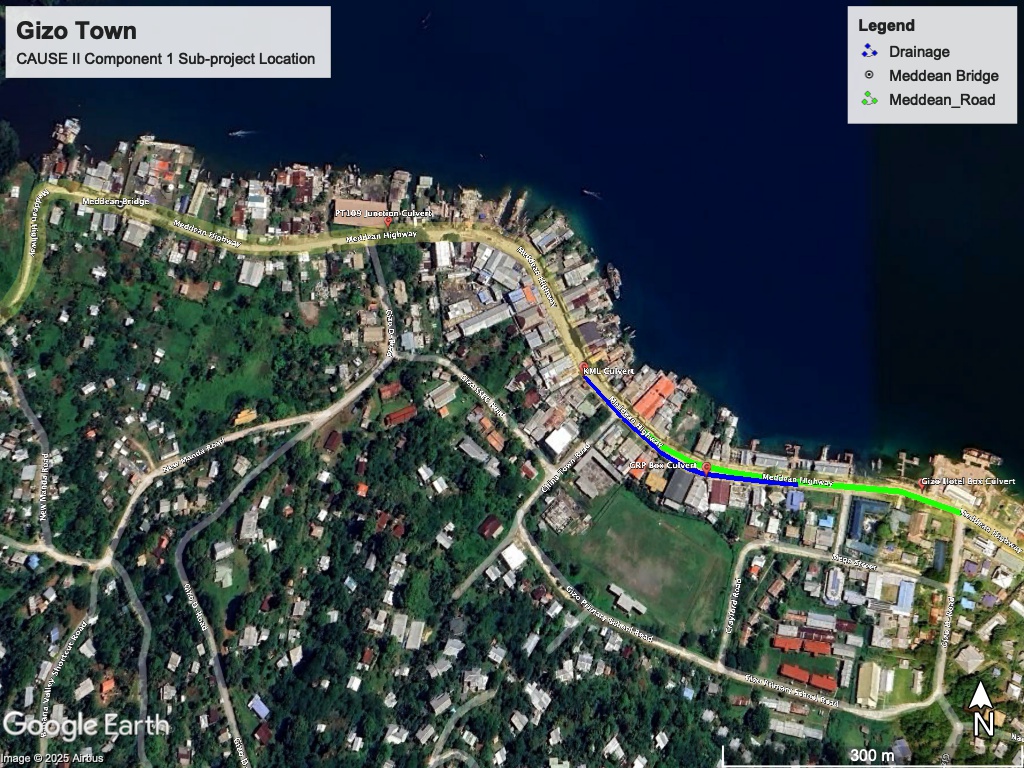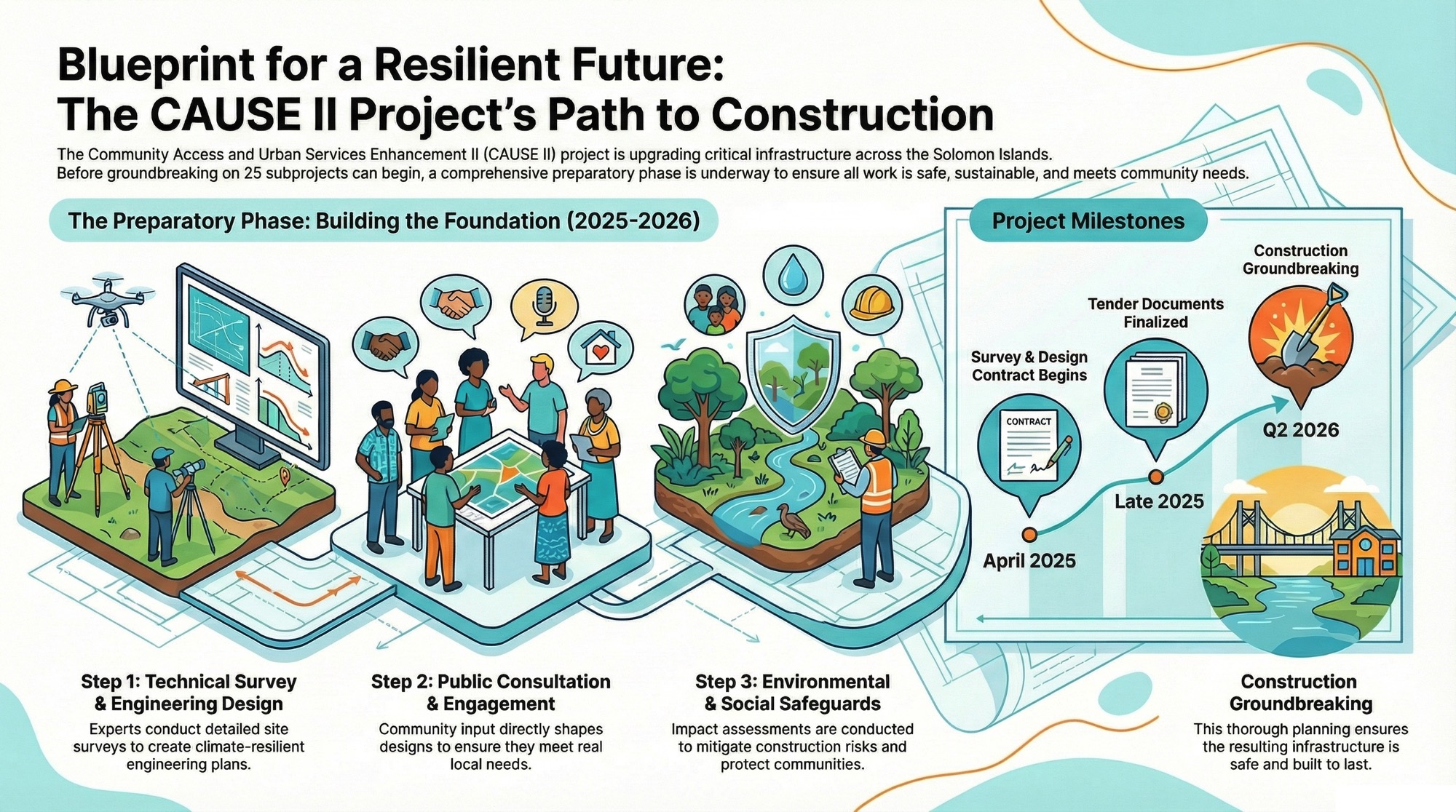CAUSE II Hosts Pre-Construction Meeting to Emphasize Environmental and Social Safeguards for Road Rehabilitation
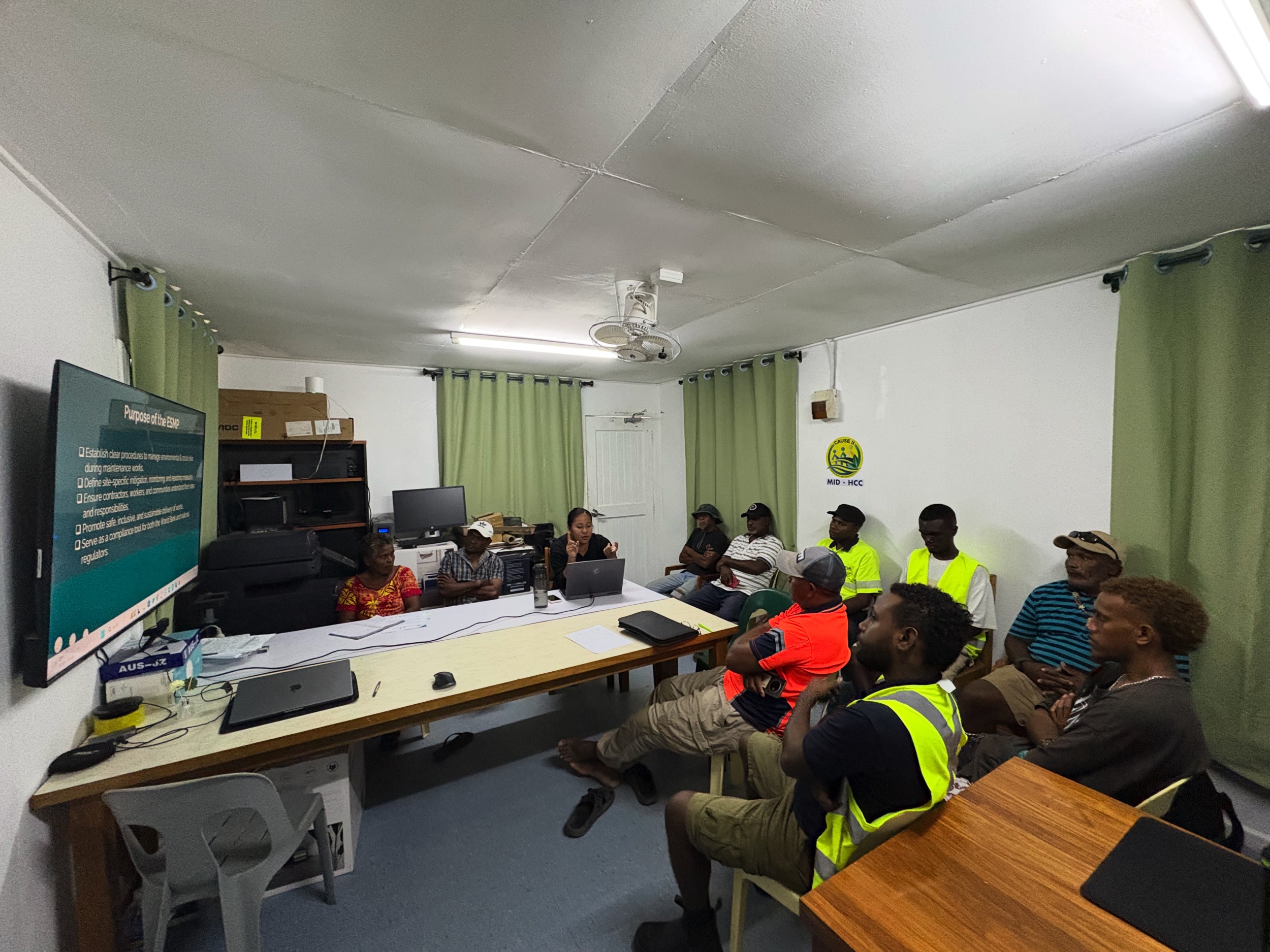
The Community Access and Urban Services Enhancement II (CAUSE II) Project held a pre-construction meeting on October 17, 2025, to brief three contracted firms and their field engineers on key contractual obligations and Environmental and Social Management Plan (ESMP) compliance. The meeting marked a crucial preparatory step before rehabilitation works commence on nine unsealed road segments in Honiara, totaling 5.5 kilometers.
Led by CAUSE II Environment and Social Officer Wendy Andrews alongside Project Managers from the Ministry of Infrastructure Development (MID) and Honiara City Council (HCC), the session provided contractors with detailed orientation on their responsibilities under the World Bank Environmental and Social Framework (ESF) and CAUSE II’s Environmental and Social Management Framework (ESMF).
The ESMP, developed specifically for routine road maintenance under Component 2 of the project, outlines measures contractors must adhere to in order to protect people and the environment during works. Key requirements discussed included:
• Health and Safety: Contractors must ensure all workers are equipped with proper personal protective equipment (PPE), including boots, helmets, gloves, and reflective vests. Worksites must provide access to clean drinking water, sanitation facilities, and waste bins.
• Public Safety: Roads under maintenance must be clearly marked with signage, barricades, and restricted zones to protect pedestrians and traffic. Community awareness notices must be disseminated prior to and during construction activities.
• Waste Management: Contractors are required to segregate waste (organic, recyclable, and hazardous) and dispose of it at approved sites. Spill kits must be available on site for hazardous material handling.
• Erosion and Sediment Control: Work must be confined to designated corridors. Topsoil should be stockpiled and reused. Silt traps and erosion barriers must be installed, especially in areas prone to runoff.
• Monitoring and Reporting: Contractors must conduct daily and weekly site inspections, maintain detailed logs of dust levels, water quality, PPE usage, and grievances, and submit monthly environmental and safety compliance reports.
Contractors were reminded that non-compliance may result in corrective actions or work stoppages. They were also encouraged to foster a culture of safety and inclusivity on-site and engage meaningfully with surrounding communities.
The road rehabilitation, scheduled to begin this month and conclude in February 2026, forms part of CAUSE II’s broader mission to improve urban mobility, service delivery, and economic opportunity. Once construction is completed, community groups will be engaged to maintain the roads through activities such as vegetation control, drain cleaning, and pothole repairs.
⸻
The Community Access and Urban Services Enhancement II (CAUSE II) Project is a transformative initiative aimed at improving climate-resilient infrastructure, enhancing economic inclusion, and strengthening service delivery in targeted urban centers across the Solomon Islands. Led by the Ministry of Infrastructure Development and Honiara City Council, in collaboration with the Ministry of Lands, Housing and Survey, and the Provincial Governments of Guadalcanal, Malaita, and Western Province, CAUSE II is a Government of Solomon Islands initiative. The project is supported by the World Bank and the Government of Australia through the Papua New Guinea and Pacific Islands Umbrella Facility Multi-Donor Trust Fund (PPIUF).
Gallery

